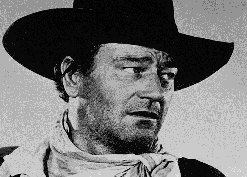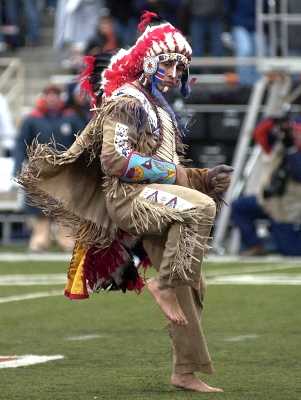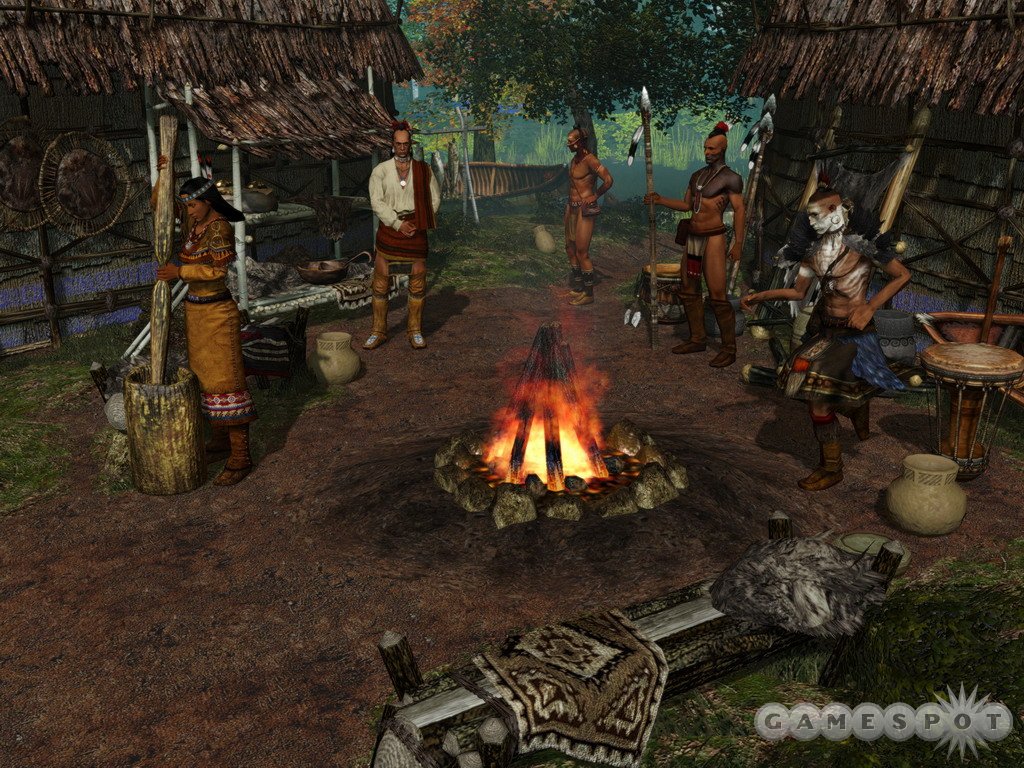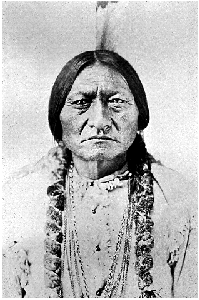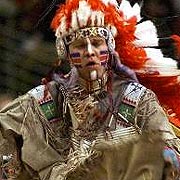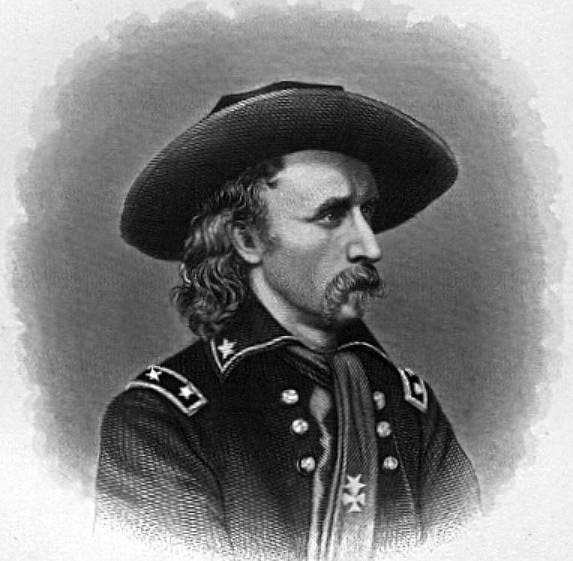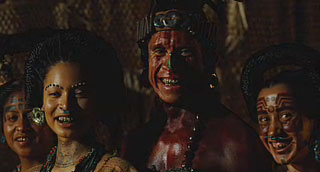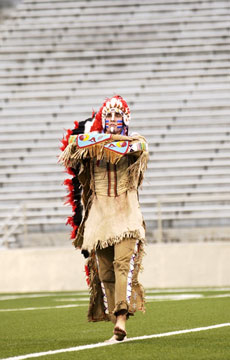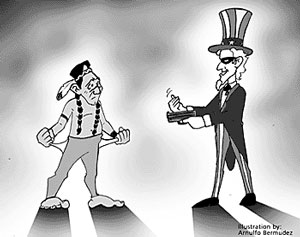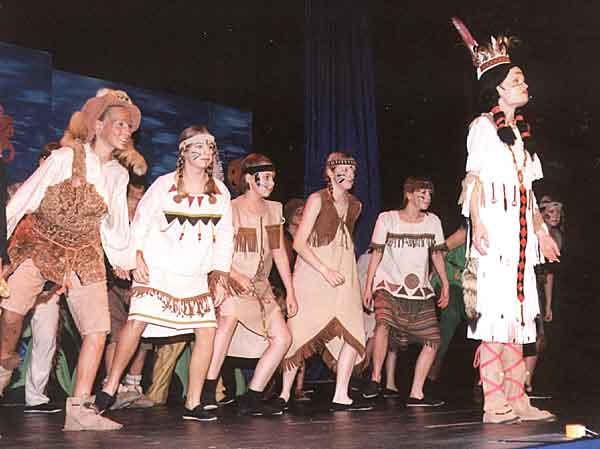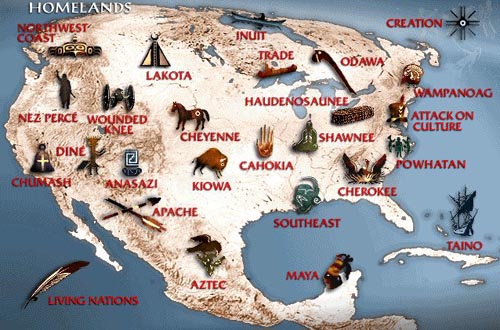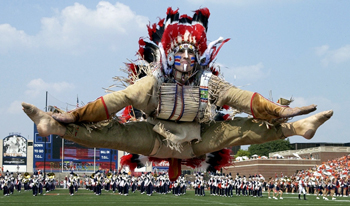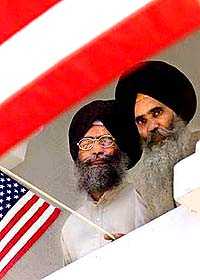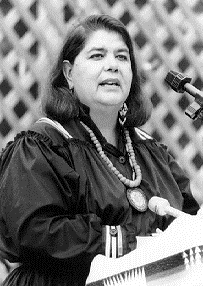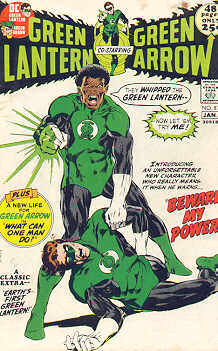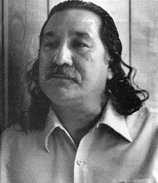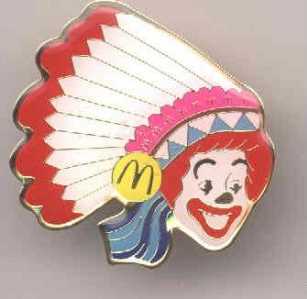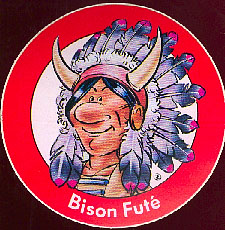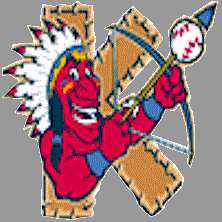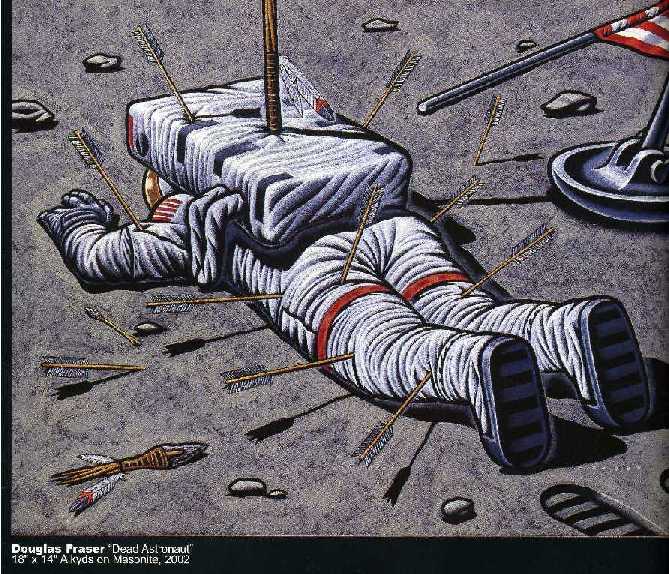She notes that nearly all Indian nations require their citizens to be able to document direct ancestors in the tribe. Standards vary from nation to nation, and most are more stringent than the Cherokee. Fishinghawk says a tribe's right to set conditions of citizenship is fundamental to its sovereignty. "It's a democratic process, people are allowed to vote. That's what America is based on, that's what we use here in the Cherokee Nation. And I don't see any problem with it."
The Cherokee freedmen do. Because after fighting on the losing side in the American Civil War, the Cherokees signed a treaty guaranteeing their newly-freed slaves citizenship in the tribe. And the 1866 treaty's protection outweighs the tribe's claims of sovereignty on this issue, according to Marilyn Vann, president of the Descendants of Freedmen of the Five Civilized Tribes Association.
"You know, there never was such a thing as the Cherokee race," she says, pointing out that the Cherokee tribe has always been a diverse nation, not a race. "Cherokee was a citizenship. Actually, it's safer for the tribe to say 'We are a nation of people.' If you keep saying you're a race.…" She shakes her head. "The federal government doesn't have government-to-government relations with races, only nations."



